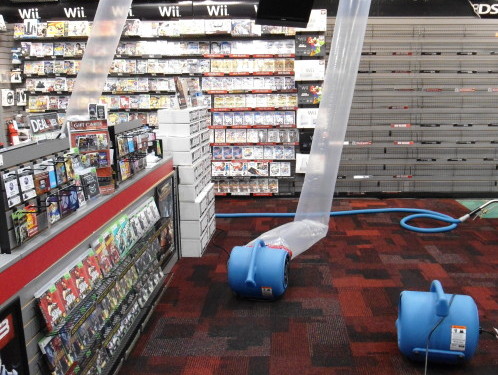
What is Mold?

What is Mold? Everything You Need to Know
If you’re like most homeowners, you have probably come in contact with mold. Perhaps you’ve seen it growing on old food you didn’t eat quickly enough, or you might have dark spots on the bathroom ceiling. You know the signs of mold, but where does this potentially harmful growth come from?
Understanding what mold is, and how it grows, is the first step in keeping your home free of excessive mold.
What is Mold?
Mold is a type of fungus. Fungi are not plants or animals, and individual mold spores are microscopic. By the time you see green or black growth on surfaces, the mold has multiplied to such an extent that it can be seen by the naked eye. Mold feeds on organic matter, which includes food left sitting out in the kitchen, as well as common carbon based building materials like wood, drywall, and organic fibers in carpeting.
There are various types of mold, and all may present with a slightly different color. Black, green, and brown are common colors mold may present as. The materials on which it is growing may also affect the color and growth pattern.
Where is mold found?
If you were able to see the tiny mold spores floating around in the environment, you would see that mold is absolutely everywhere. Due to their tiny size and abundance in the air and on surfaces, it is impossible to remove all traces of mold from indoor settings.
Excessive mold growth is usually found in areas where there is a lot of moisture. Common areas in homes where mold is likely to grow include basements, bathrooms, areas around leaky pipes, air ducts, and other places where wetness can accumulate.
How can homeowners control mold?
The best way to keep mold from becoming a problem is to ensure wetness is kept at bay. Dry clothes as soon as possible, use an exhaust fan in the bathroom during showers, check for leaks in the roof and pipes, and use a meter to keep track of humidity in the air.
Think you might have a mold problem?
If you’re already dealing with issues related to mold, the experts at Rapidcan will help you get things under control. Air quality testing… mold removal… water damage restoration… we do it all, quickly and effectively. Call today to find out how we can help.
Rapidcan Inc., All Rights Reserved
416-333-6336
